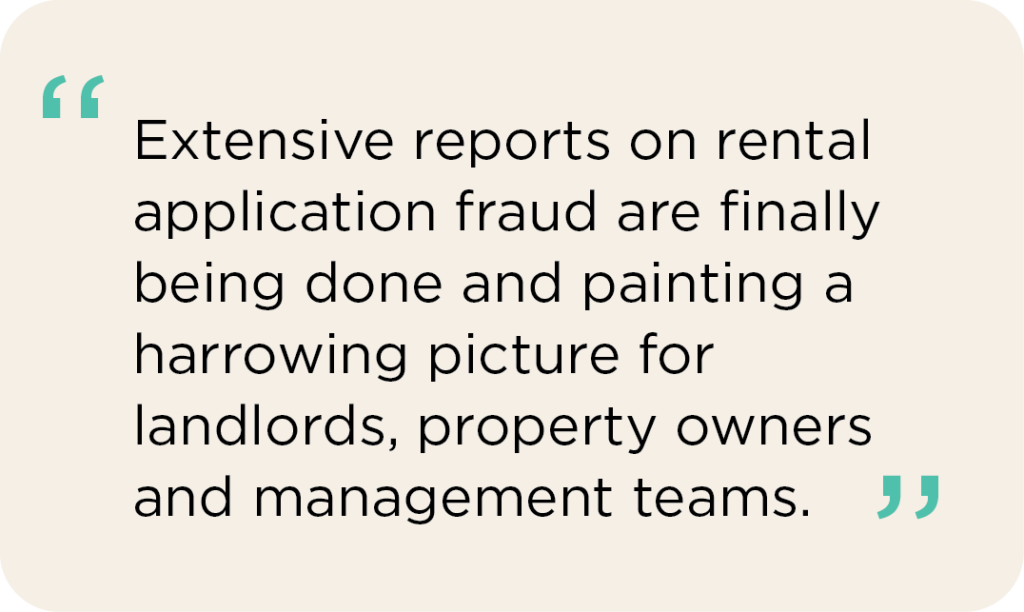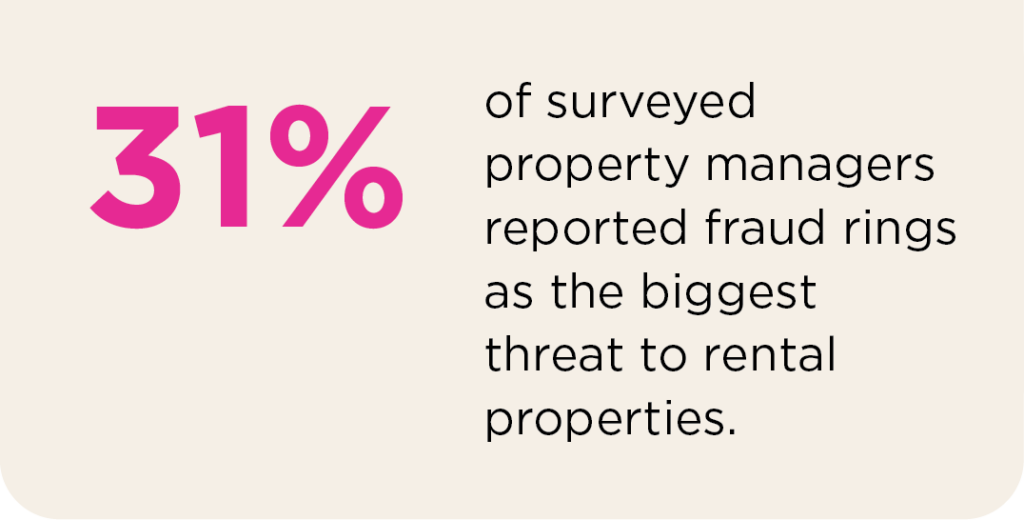The Forms, Causes, and Consequences of Rental Application Fraud
Scams in the real estate industry are on a dangerous trajectory with year-over-year spikes in crimes involving seller impersonation schemes and identity theft.


Crime rates are expected to continue rising for the foreseeable future. Meeting strangers inside private residences literally opens the door to risk, as does signing their lease. To combat tech-savvy scam artists and desperate rental applicants that beat average tenant screenings, leverage standard Self-Tour technology with biometric identity verification, verifiable access records, and tie-in surveillance devices to guard your doors in real time and in court. For more information on how these scam and fraud prevention, there’s more information here
Citations
National Multifamily Housing Council. Quick facts: Resident demographics. (n.d.). https://www.nmhc.org/research-insight/quick-facts-figures/quick-facts-resident-demographics/
RealPage. National Multifamily Fraud Research Study. (2024, March 26). RealPage. https://www.realpage.com/ebooks/uncovering-impact-of-rental-application-fraud/58aabc2a-eba3-11ee-b189-005056ae66af/
TransUnion. (2018, September 5; updated May 2023). Fraud: the new operational headache in property management. https://newsroom.transunion.com/fraud-the-new-operational-headache-in-property-management/
United States Secret Service Cybercrime Investigations. (2023). Real estate scams. https://www.alta.org/file?name=Seller-Impersonation-Fraud